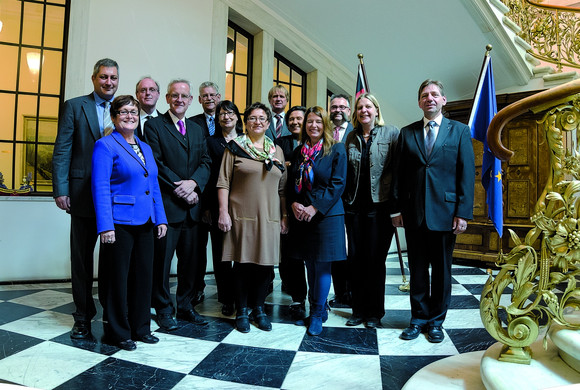
In its strategy paper published today the bioeconomy council argues, that in view of further accessible petrol, gas and coal reserves, the expectations of increasing prices for fossil resources are no longer the main drivers of the evolution of the bioeconomy. However, the necessity to transition to renewable resources has not lost momentum. “Without major adjustments, the continued emission of greenhouse gases and the related changes in climate conditions will irreversibly damage the global ecosystem and will involve incalculable risks for people and the economy. The bioeconomy can deal with these issues,“ stresses Prof. Dr. Joachim von Braun, chairman of the German Bioeconomy Council.
Yet, the Bioeconomy is more than a substitute for oil strategy. Changing consumer preferences and tech- nological innovations advance the bioeconomy on the global scale. Biobased production and novel goods combine sustainability with increased consumer benefits. This opens new markets and secures unique technological selling propositions. However the ecological transformation of the economy will not happen by itself. The use of fossil resources can remain profitable in the long run – as long as adverse externali- ties are disregarded. To protect the global climate and environment on the one side and to maintain the competitiveness of the German economy on the other, the state hast to react in time and at the right dosage to the changing conditions. “Excessive national expansion targets and subsidies might dispropor- tionally burden the industry. A promising bioeconomy strategy has to focus on efficiency, reduced envi- ronmental footprints and lower resource consumption,” said Prof. Dr. Christine Lang, chairwoman of the Bioeconomy Council. This includes the active promotion of new technologies and closed material cycles and an accompanying discussion with society, science and industry.
The council recommends:
(1) the transition of the economy to biobased value chains,
(2) the early identification and timely reaction towards resource conflicts and undesirable developments,
(3) regulations, standards and labels are important instruments to strengthen the demand for biobased products,
(4) investments in the biobased economy and its innovations,
(5) the expansion of education and research capacities,
(6) a fundamental revision of the German bioenergy policy,
(7) a more intense cooperation between Germany, emerging and developing countries to secure global nutrition,
(8) a trade agenda for the sustainable bioeconomy,
(9) the installation of global control mechanisms for consumption, trade and resource protection,
(10) the extension of the participation of the civil society.
The bioeconomy council supports the stakeholders in the task to define this path and invites all societal groups to participate in the shaping of the bioeconomy.
More information:
About the Bioeconomy Council:
The Bioeconomy Council advises the Federal German Government on the implementation of the “National Research Strategy Bioeconomy 2030” with the aim of creating optimum economic and political frame- work conditions for a biobased economy. It is the Council’s aim to establish a cross-sectoral biobased economy in Germany which will manage less fossil raw material. It generates sustainably created pro- ducts and services, thus combining economic growth with the objective of environmental compatibility. The Federal Ministry of Education and Research (BMBF) and the Federal Ministry of Food, Agriculture and Consumer Protection (BMELV) established the Council as an independent advisory board to the German Federal Government in 2009. In addition, five other federal ministries seek the advice of the Council. The central task of the current 17 members, whose expertise covers the full spectrum of the bioeconomy, is to search for ways and means towards sustainable solutions and to present their insights in a global context. The Bioeconomy Council conducts an open dialogue with the general public. It also provides recommen- dations on how best to promote education and training as well as research and development. The Coun- cil’s activities are aligned with both long-term objectives and current political requirements. The Council convenes regularly, most recently on 28 and 29 April in Berlin.
Source
German Bioeconomy Council, press release, 2014-05-14.
Supplier
Share
Renewable Carbon News – Daily Newsletter
Subscribe to our daily email newsletter – the world's leading newsletter on renewable materials and chemicals










